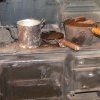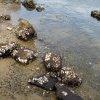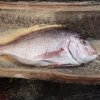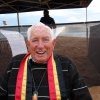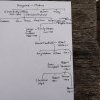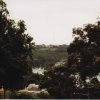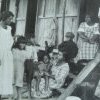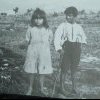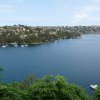‘Black Lucy’ lives in Milling Street Gladesville until she dies in late 1920s. She is referred to by Europeans as the last (traditional) member of the Gamaraigal tribe and is buried in the Field of Mars Cemetery.
About a dozen girls from the Cootamundra Training Home for Aboriginal Girls are placed in North side homes as domestic servants. They looked after small children or worked in the kitchens and seldom had any contact with their families or friends from Cootamunda.
A Koori camp exists near the present Warringah Golf Course. People eat both traditional and European foods, (Dennis Foley, oral history).
